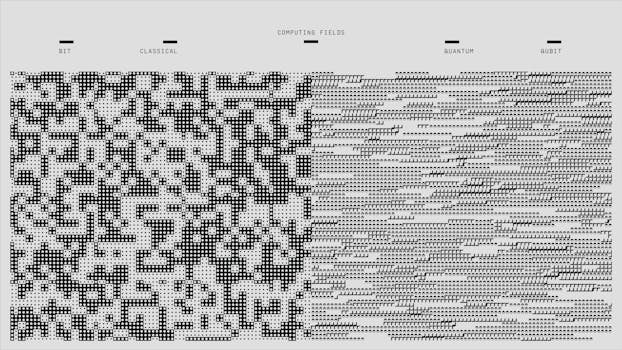
Quantum Computing in 2025
: The Future is Now
Imagine a world where computers can solve complex problems in seconds that would take traditional supercomputers centuries to crack. This is the promise of quantum computing, a revolutionary technology that has the potential to transform industries, break encryption codes, and push the boundaries of human knowledge. As we look ahead to 2025, the possibilities of quantum computing are both exciting and daunting. In this blog post, we will explore the current state of quantum computing, its potential impact in the near future, and what this means for tech-savvy individuals.
The Current State of Quantum Computing
Quantum computing is not a new concept, but recent advances in technology have brought it to the forefront of the tech industry. Traditional computers, which rely on bits (0s and 1s) to process information, are limited in their ability to tackle highly complex problems. Quantum computers, on the other hand, use qubits (quantum bits) that can exist in multiple states simultaneously, allowing them to perform calculations at speeds that seem almost magical.
In 2025, we can expect to see significant improvements in quantum computing hardware and software. Companies like IBM, Google, and Microsoft are investing heavily in quantum research and development, with the goal of creating practical quantum computers that can tackle real-world problems. Quantum processors with hundreds of qubits are already in development, and researchers are making strides in error correction, quantum algorithms, and quantum networking.
Potential Impact in 2025
The potential impact of quantum computing in 2025 is vast and far-reaching. From optimizing supply chains and drug discovery to revolutionizing cybersecurity and artificial intelligence, quantum computing has the power to disrupt industries and transform the way we live and work. For example, quantum computers could revolutionize the field of chemistry by enabling scientists to simulate and design new molecules with unprecedented accuracy. This could lead to the development of new drugs, materials, and energy sources that were previously thought impossible.
In the field of cryptography, quantum computers pose a significant threat to current encryption methods. Shor's algorithm, for example, would allow a quantum computer to break RSA encryption in a fraction of the time it would take a traditional computer. As quantum computing capabilities continue to improve, it will be crucial for organizations to adapt and develop quantum-resistant encryption methods to safeguard their data and communications.
Case Study: D-Wave Systems
One of the leading players in the quantum computing space is D-Wave Systems, a Canadian company that specializes in quantum annealing technology. D-Wave's quantum computers have been used in a variety of applications, from optimizing airline schedules to solving complex optimization problems in finance and logistics. In 2025, D-Wave is poised to make significant advancements in quantum computing with the release of its next-generation quantum processors, which promise to deliver even faster speeds and higher qubit counts.
Conclusion
As we look ahead to 2025, the future of quantum computing is both exciting and uncertain. While the potential of quantum computing to revolutionize industries and solve complex problems is undeniable, there are still significant challenges to overcome, from hardware limitations to algorithmic complexity. As tech-savvy individuals, it is important to stay informed about the latest developments in quantum computing and be prepared for the seismic shifts that this technology will bring.
In conclusion, quantum computing in 2025 holds immense promise for the future of technology and human progress. By staying engaged and informed, we can help shape the direction of quantum computing and harness its full potential for the benefit of society. The time is now to explore the possibilities of quantum computing and embrace the future of technology.
Stay curious, stay informed, and be ready to embrace the quantum future!